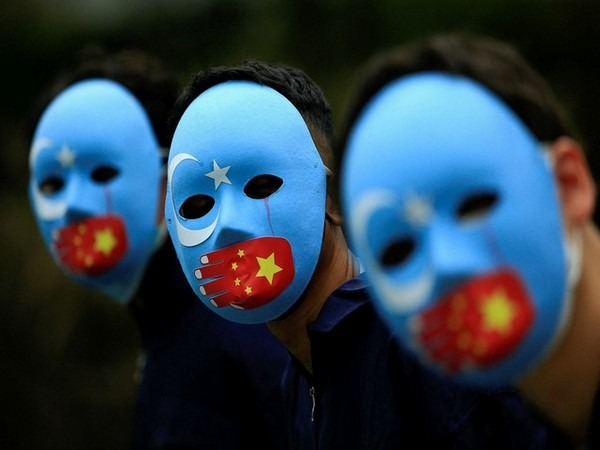China needs to deal with Taiwan as independent country, says expert
Aug 11, 2021

Taipei [Taiwan], August 11 : China has been asserting total control over Hong Kong and the next item on its geopolitical agenda is Taiwan, but Beijing needs to understand that Taiwan for all intents and purposes is an independent country.
Ramesh Thakur, writing in The Japan Times said that Taiwan fully satisfies all criteria of a sovereign independent country with a government in effective control of territory, people and resources.
Australia's current population is around 26 million and Taiwan's around 24 million. There are around 160 UN countries -- over 80 per cent of total membership -- with a lower population, says Thakur.
Since the 1990s, Taiwan has been a vibrant democracy and an increasingly prosperous one. The IMF estimates Taiwan's GDP per capita (USD 56,959) which is more than Australia (USD 54,891), the EU (USD 46,888) and Japan (USD 44,585).
China has much more to lose today from any military confrontation that would be a big setback to its economic stability and international reputation, reported The Japan Times.
The best way to raise the diplomatic costs of adventurism to China is to recognize Taiwan as a sovereign state, grant it full diplomatic recognition and open full-fledged embassies on a reciprocal basis, wrote Thakur.
But Beijing is hell-bent on reunification with Taiwan. Moreover, President Xi Jinping would like this to happen on his watch, wrote Thakur.
Beijing's rule over Taiwan against its will would be a major strategic setback for the US and its friends and allies in the region, and indeed for democracy in Asia.
The shared commitment to democratic values, after all, is the primary justification for the Quadrilateral group, or the four major Indo-Pacific democracies that make up the informal grouping also known as the "Quad": Japan, Australia, India and the United States, reported The Japan Times.
In recent times both Japan and the US have signalled a determination to come to the defense of Taiwan if attacked.
Richard Haass and David Sacks write in Foreign Affairs the time has come for the United States to embrace "strategic clarity" regarding Taiwan, reported The Japan Times.
Ayumi Teraoka has argued that the changing historical and strategic contexts make it imperative for Japan and the US to end ambiguity over Taiwan in order to bolster stability in the region.
On July 5, Deputy Prime Minister Taro Aso said Japan and the United States would have to help Taiwan in any serious contingency. Japan also broke from tradition in mentioning the importance of stability around Taiwan in its 2021 defense white paper.
Taiwan's history is one of mostly independent existence until the 15th century followed by episodic, periodic and extended periods of rule by a mainland dynasty interspersed, in the past 400 years, with the presence of Portuguese explorers, Spanish settlers, Dutch colonizers, Japanese colonial rule (1895-1945) and independent rule.
In 1945, defeated Japan ceded sovereignty over Taiwan, but to who was not clarified and the US has held Taiwan's status as "undetermined."
Importantly, most countries at the 1951 San Francisco Peace Conference said its status was to be determined in accordance with the principles of self-determination enshrined in the UN Charter.
But, Taiwan doesn't help its cause by clinging to the "Republic of China" as its official name. It should formally call itself Taiwan. To prevent economic punishment of vulnerable single countries, the G7 collectively should grant it formal recognition and exchange full embassies, suggested Thakur.
Taiwan also qualifies for UN membership but unfortunately, a Security Council recommendation is required and China would veto any such effort.
However, this does not preclude the General Assembly from adopting an annual resolution declaring that Taiwan is fully qualified to be a member state, says Thakur.



















